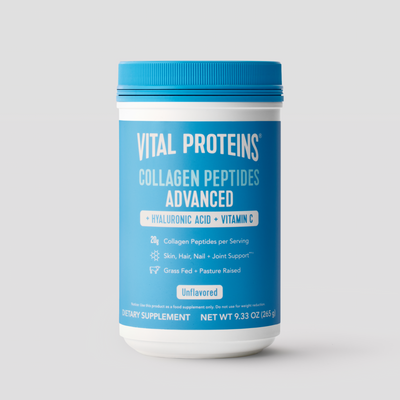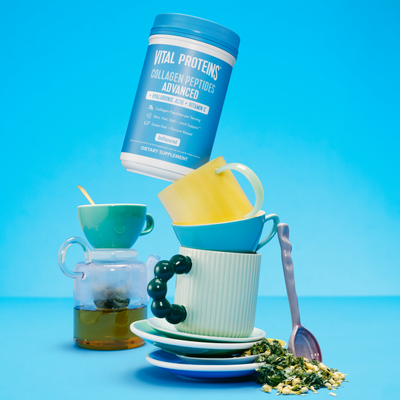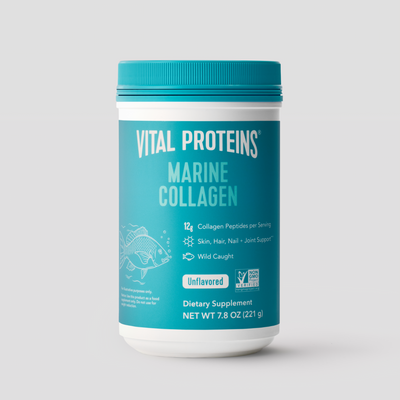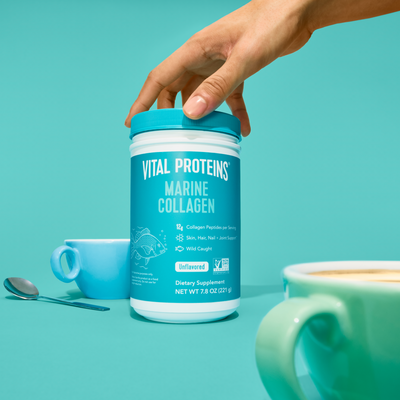Sore muscles can be frustrating, but they are important indicators as to how often and how hard you should be hitting the gym. Bottom line: Your muscles need time to rest to make gains, so it’s essential to listen to your body and follow the soreness signs for maximum benefits.
There are a couple of contributors to your post-workout muscle fatigue. “Muscles undergo micro tearing as a result of performing contractions during strengthening exercises,” Audrey Thompson, PT, DPT, tells Lively. “Our bodies then repair the micro tears, which allows for muscle gains in strength and size.” The micro tears cause a chemical cascade as a response to strengthen the muscles. This chemical response is what can cause soreness. Another source of the muscle irritation is related to the buildup of hydrogen ions as a byproduct of breaking down ATP for energy. “The buildup of hydrogen ions decreases the PH and creates a more acidic muscle environment,” shares Thompson.
Should You Work Out When You're Sore?
Why Hydration Is Important
Fueling and rehydrating can lessen the intensity of the muscle fatigue. “Hydration is important for healthy blood flow to and from muscle, which means that being adequately hydrated likely optimizes the delivery of nutrients to the working muscle and clearance of metabolic byproducts,” Matthew Taylor, RD, Ph.D, tells Lively. It’s also important to stay hydrated all throughout the day and not just for the duration of your exercise session. “There is usually significant fluid losses before you feel thirsty, aim to hydrate throughout and post workout,” shares Ariel Johnston, LD, RD. Drinking an adequate amount of water can’t necessarily help to prevent muscle soreness, but it can lessen the symptoms. [Editor note: Drinking Vital Proteins Collagen Water is a flavorful way to up your hydration game.]
In general, eating a healthier diet can help the muscles. We’re talking a diet rich in fruits, high-quality protein and veggies. As far as specific foods go, Taylor notes that pineapple, cherries, pomegranate, fish (full of omega-3s) and watermelon have been suggested to be beneficial. The timing of when you eat post-workout is also important. “Studies have shown that a two-hour window post-exercise is optimal for muscle recovery and growth,” shares Johnston. “The body is the most effective at replacing energy stores with carbs and building muscles with protein 60-90 minutes after a workout.” Proper nutrition and hydration are important, but it can’t stop it altogether considering exercise causes this muscle breakdown.
RELATED: The Best Hydration Tips to Use This Summer

Do You Have to Stop Working Out?
Experiencing muscle aches (related to exercise) doesn’t necessarily mean you have to cancel your workout class. In fact, it can be beneficial to engage in some gentle movement. “Light resistance or cardio exercises are thought to help [with] reducing muscle soreness,” shares Thompson. It’s important to mix it up because completing back-to-back heavy resistance training with the same muscle groups on consecutive days may hinder the recovery process. The importance behind giving your muscles a break comes back to rest and repair in order to make gains in size and strength. This repair time is essential to reaping the benefits from your workout. Thompson recommends recovery exercise such as walking, yoga, and light resistance exercises involving the sore muscle groups (to bring blood flow to those muscles).
Consider alternating heavy resistance training between different muscle groups or completing exercises of light intensity involving larger muscle groups.
Here’s an example workout schedule that can be done with dumbbells or a barbell. And of course, always consult with your doctor before starting a new workout program.

Your New Daily Workout Schedule
Monday:
- Back squats 3 sets of 12 repetitions
- Lunges 3 sets of 12 repetitions
- Deadlift 3 sets of 12 repetitions
Tuesday:
- Walk/light cardio, yoga
Wednesday:
- Chest press 3 sets of 12 repetitions
- Shoulder press 3 sets of 12 repetitions
- Row 3 sets of 12 repetitions
Thursday:
- Walk/light cardio, yoga
Friday:
- Front squat 3 sets of 8 repetitions
- Push press 3 sets of 8 repetitions
- Single leg deadlift 2 sets of 8 repetitions each leg
- Lat pulldown 2 sets of 8 repetitions
Saturday:
- Walk/light cardio, yoga
Sunday:
- Walk/light cardio, yoga

















